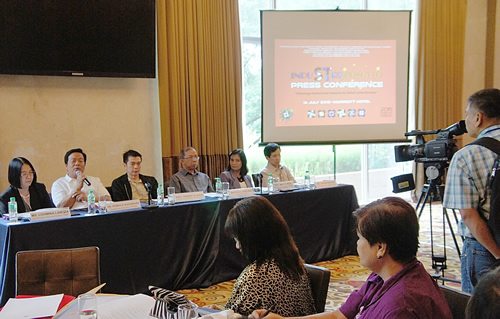DOST-FPRDI launches DIY Bamboo Shelter
- Details
DOST-FPRDI launches DIY Bamboo Shelter
August 3, 2015
The Department of Science and Technology’s Forest Products Research and Development Institute (DOST-FPRDI), along with partner groups, inaugurated last 29 June 2015 the Do-It-Yourself Bamboo Shelter to help meet the housing needs of Typhoon Yolanda victims. Developed with support from DOST Region 8 and funded by the Philippine Council for Agriculture, Aquatic and Resources Research and Development (PCAARRD), the shelter was launched at the DOST Grounds, Government Center in Palo, Leyte.
“The DIY Bamboo Shelter,” says FPRDI researcher Dr. Rico J. Cabangon, “is an easy-to-build, eco-friendly, visually appealing, and low-cost house. Our plan is to make it a semi-permanent or permanent shelter for those who have lost their homes during Typhoon Yolanda and other calamities. The advantage of the bamboo house is that it can be disassembled and moved to safer grounds in case there is an upcoming super typhoon.
DOST Agencies Hold Press Conference for NSTW Celebration
- Details
DOST Agencies Hold Press Conference for NSTW Celebration
July 27, 2015
To give members of the media a preview of the upcoming National Science and Technology Week (NSTW) celebration, key officials representing the Department of Science and Technology’s Outcome 3 – Industry Competitiveness, held a press conference last 16 July 2015 at the Garden Room, Marriott Hotel, Pasay City.

|
DOST-FPRDI helps in cinnamon conservation
- Details
DOST-FPRDI helps in cinnamon conservation
July 23, 2015
Where does the fragrant smell of your favorite cinnamon roll come from? From the spice produced by the bark of the cinnamon tree. And conserving that tree - specifically the Philippine cinnamon tree - is the focus of a project recently started by the Department of Science and Technology’s Forest Products Research and Development Institute (DOST-FPRDI) along with two partner groups.
Launched at the Cebu Normal University last May 2015, the Pinoy Cinnamon Conservation Project is DOST-FPRDI’s joint venture with the Cebu Biodiversity Conservation Foundation (CBCF), the Flora and Fauna, Intl. (FFI-Philippines) and the funding agency, Philippine Tropical Forest Conservation Foundation (PTFCF).










